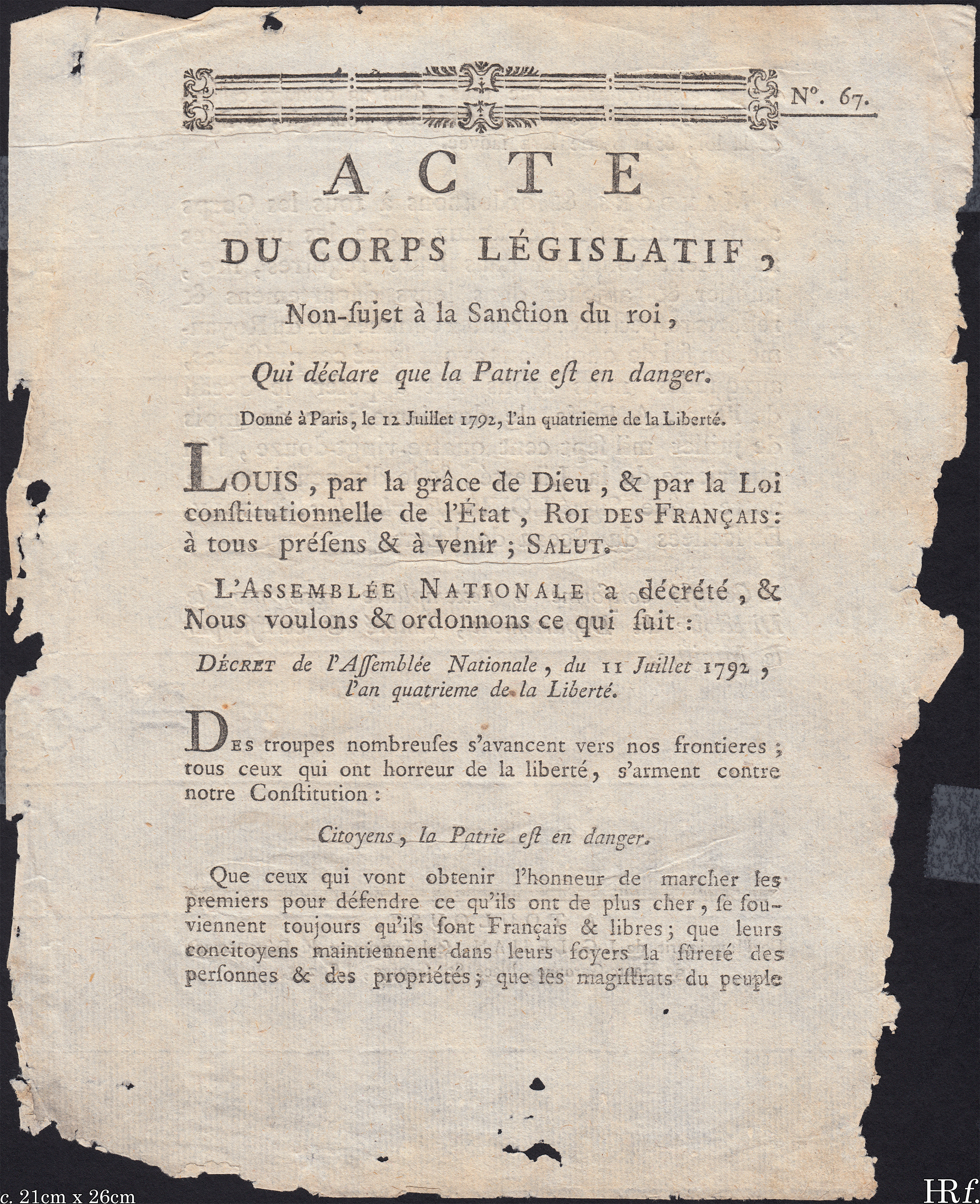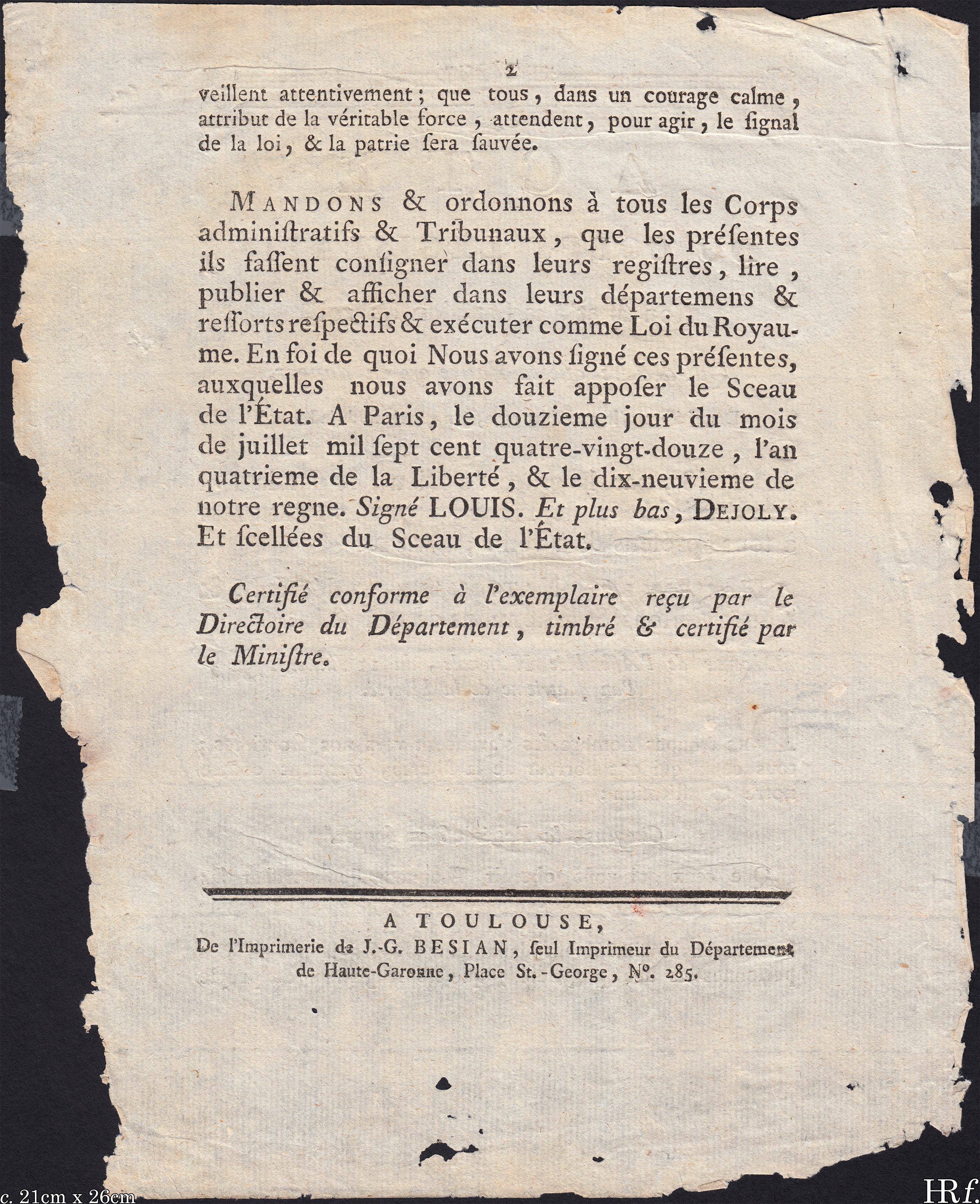France
"La patrie en danger," 11th july 1792
A defining moment of the French Revolution: France, already in a state of wild alarum after Austria had declared war on her, awoke on the 11th July 1792 to find that she was now at war with Prussia as well — both countries promising to forcibly end the revolution and restore poor King Louis to his former absolutism. The fiery orators of the National Assembly rose to meet the challenge (rhetorically, at least — an effective military response could not be put together quite as quickly as a fine speech, as would soon become apparent), and all throughout the day the Assembly resounded with great declarations of defiance: that all twenty-five million Frenchmen and Frenchwomen stood solidly behind the Revolution and would take up arms to defend it — that the nation would rather perish at the hands of these foreign invaders than give up its hard-won liberties, etc., etc. Anyway all these patriotic effusions were distilled into the following short declaration, which was issued as a formal Act of the Corps Législatif the next day:
A DECREE of the National Assembly, dated the 11th July 1792, the fourth year of liberty.
Numerous troops advance towards our frontiers; all those who hate liberty arm themselves against our constitution:
Citizens, the Fatherland is in danger.
Those who will obtain the honour of being the first to march to defend that which they hold dearest, will remember always that they are French and free; that their fellow citizens will tend to their homes and keep safe their property and their relations; that the magistrates of the people will keep a careful watch; that they all, with calm courage, a sign of true strength, will await the signal of the law to act, and the country will be saved.[1]
Anyway, the object itself: as can be seen this is in fairly abominable condition, but not much was being asked for it, and it relates to one of the iconic episodes of the Revolution — which naturally counted a little in its favour. I try in all cases to leave a bit of the black background on every side of the things I scan, but in this case I contemplated cropping this one very close, to cut out the worst of the damage — I thought, however, there might be some worth in preserving the sense of this as a physical object, something which I think is easily lost when the borders of a scan fall short of the edges of the subject. So I humbly offer this up as it exists in the real world, worm-holes and all. The actual printed part is pretty much intact, anyway, which is the main thing. Printing of this was carried out locally, at the Toulouse printing works of one J. G. Besian: the arrangement of the text feels a touch undignified, with the actual substantive part of the decree spread out over two pages, causing its majestic run-on sentence to be unfortunately cut in half.[2]
[1] I offer here the usual caveat that I cannot understand French to any degree whatsoever.
[2] It looks like the whole decree could've been squeezed onto one side if the dingbat at the top was removed?


